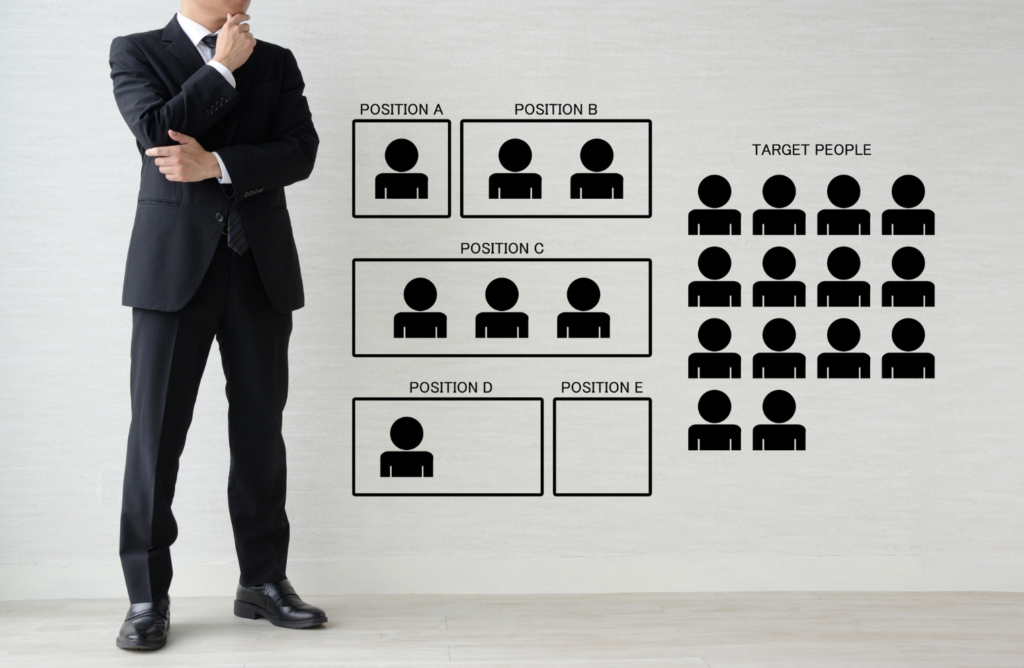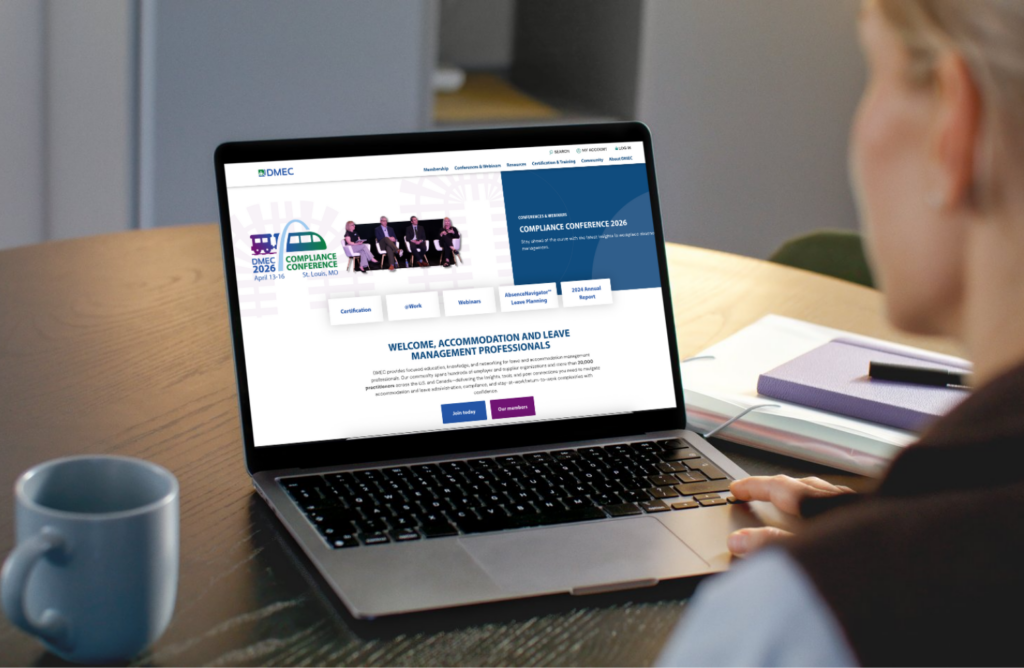
How would you respond if an employee shared a mental health issue that was affecting their work? Would you freeze, try to reassure them, or immediately start paperwork?
These moments are often unexpected, and even experienced mental health professionals may find themselves unsure of how to respond. From a policy standpoint, this situation falls under the Family and Medical Leave Act (FMLA), the Americans with Disabilities Act (ADA), or an internal leave and accommodation process. It is essential for all employees to know what pathways are available.
Before you start paperwork, take a supportive approach — or what some professionals call “holding space” — for the person discussing a health issue. It often starts with responding with an email saying, “Thanks for telling me. This sounds difficult. Let’s set a meeting to figure out what support might look like for you.”
The goal here is to validate the employee’s situation and identify support that helps him perform his job more effectively. Mental health should be part of a larger conversation about workplace wellness, and it is important to call it out explicitly so employees are aware of resources. Offering the right accommodations when the problem is addressed can boost productivity and prevent extended leave later on.
In fact, research shows that proactive accommodation tends to improve employee outcomes and productivity. A substantial number of employers (53%) cited increased productivity as a direct benefit of providing accommodations.1 Additionally, a review of published studies, including the cost–benefit analysis of work accommodations for employees with mental disorders, concluded positive economic benefits for employers.2
The good news is that most accommodations for mental health conditions are low cost or free. Since mental health coverage is typically included in standard benefits packages, providing meaningful support doesn’t have to be a financial burden. According to the Job Accommodation Network (JAN), accommodations for anxiety3 and depression4 often overlap and can include uninterrupted “off” time accommodations such as:
- Flexible schedule to attend treatment;
- Modified break schedule;
- Private space and designated areas to rest;
- Ability to spend time with a support person or animal;
- Help with identifying and reducing exposure to triggers; and
- No after-hours contact.
Confidential and Personalized Processes
Supporting employees with mental health challenges requires attention throughout the employment journey. One key area that demands focus is manager training. If human resources (HR) is proactive in offering support but managers lack awareness — or respond with discriminatory or retaliatory behavior — it can lead to a negative employee experience and legal risks.
Confidentiality is another essential component. Employees should be able to request accommodations privately without disclosing a mental health diagnosis to managers. The ADA requires employers to keep all disability-related information confidential, which means that only HR should have access to medical details.
One way to facilitate confidential accommodation requests is through self-service online portals that allow employees to submit accommodation requests anytime from any device directly to the HR team. They can also track the status of requests and upload necessary medical documentation. If an accommodation is granted, managers and team members may need to be informed that certain procedures or workflows are being adjusted but should not be told the reason.
One key aspect to emphasize is the interactive process, which is required by the ADA and can help prevent accommodations from becoming one-size-fits-all solutions. Careful documentation and a thoughtful approach are essential to recognize the unique nature of each request and ensure decisions are made equitably across the workforce.
Prioritizing Mental Health in the Workplace
Employees’ needs can change over time, which makes it essential for companies to offer continuous access to accommodations and a clear process for reviewing and adjusting them as necessary.
Clear guidelines and a controlled process can help managers and employees navigate uncharted territory. Implementing a regular review process is an important step to safeguard continuity and ensure ongoing accommodations are still working.
Depending on the length and type of accommodation, the review cycle for new or temporary accommodations could be short term (days or weeks) or long term (every six or 12 months). The goal is to verify that the employee’s disability or condition hasn’t changed while ensuring the accommodation is still working for the business.
Because laws like the ADA, FMLA, and the Pregnant Workers Fairness Act (PWFA) can be complex, many large corporations and government agencies use innovative technology to automate repeatable and tedious parts of the process and centralize all information for regular reviews.
Long-term support and ongoing education are key to fostering an inclusive and productive work environment. Prioritizing these efforts allows HR teams to improve employee well-being, increase productivity, and maintain compliance.
Empowering our team members to respond appropriately and compassionately to mental health disclosures from employees is not just about compliance; it is about trust.
Increasing Demand
One in five U.S. adults experience mental illness each year, and the condition is serious for one in 20.5 So how can employers support team members and help them stay at work or return as soon as possible?
Employees who disclose a mental health condition are protected from discrimination under the ADA, and the question of how employers ensure compliance is an ongoing challenge. A growing number of employees are accessing mental health leave through the FMLA, and various accommodations through the PWFA. While some of the ADA protections have been in place for decades, conversations about mental health have become more open in recent years, which is why HR teams must assess their programs to provide meaningful support and ensure compliance.
Data6 shows that mental health continues to be a top driver of requests for both leave and accommodations, with 57% reporting that it is one of the top three reasons employees requested job accommodations in the last year.7 HR teams are also seeing an increase in accommodation requests as more companies continue a return-to-office transition5 that creates difficulties for employees who were able to manage their needs at home with self-provided accommodations.
An Ongoing Process
Mental health conditions fall under the broader category of invisible disabilities: health challenges that may not be noticeable but can affect daily life. That’s why HR teams must take proactive steps to ensure employees understand their accommodation options, whether they need them now or in the future.
The first step is open communication that encourages employees to share their thoughts and ideas. Below are two best practices to engage in a responsive dialogue:
- Understand that first responses always carry weight. Mental health experts explain that silence can feel like rejection, so acknowledge a request as quickly as possible. And remember that minimizing an issue can chip away at trust, so avoid attempts to relate, which may sound dismissive. Even comments meant to connect and defuse tension, such as “Oh, I’ve been there,” or “Yeah, that sounds just like when I …,” can feel dismissive.
- Know that human responses can make an important difference. Some employees may worry they will be seen as unreliable or difficult when speaking up, so validation of what is happening and identifying resources with a calm tone of voice and open body language may provide validation.
When to Begin the Process
Proactive measures to provide accommodations begin during the hiring process, as mandated by the ADA, yet there is often a lack of awareness and insufficient staff training to ensure compliance. In fact, companies should prioritize ongoing, comprehensive ADA training programs to ensure recruiters are well-versed in all aspects of the regulations. To reinforce this knowledge, incorporating real-world exercises and case studies can provide practical insights and help recruiters better understand and meet the needs of diverse candidates.
While some employees may identify the need for an accommodation on Day 1, others might not be aware of their rights or worry about the negative consequences to making a request, especially one that falls within the mental health realm. Proactive communication helps ensure employees understand their options and feel more comfortable accessing the support they need.
Similar to the importance of addressing needs early in the hiring process, regular and proactive check-ins and regular education and communication are also vital to employee health and wellness. Consider distributing a wellness newsletter, scheduling manager one-on-one meetings that highlight mental health resources, and initiating internal communications campaigns that feature expert speakers to normalize the conversation.
Training in this realm is increasingly important because at the end of the day, our interactions matter more than we may realize, as explained by Kat Atwell, a mental health advocate, during a recent webinar.8 Employers’ response is critical to employees who confide in them about experiencing panic attacks that cause the employees to be late or struggle to show up as their best selves. Empowering our team members to respond appropriately and compassionately to mental health disclosures from employees is not just about compliance; it is about trust.
References
- Job Accommodation Network. A to Z: Costs and Benefits of Accommodation. Retrieved from https://askjan.org/topics/costs.cfm
- National Library of Medicine. A Systemic Review of Work Accommodations for People with Mental Disorders. Retrieved from https://pubmed.ncbi.nlm.nih.gov/31658080/
- Job Accommodation Network. A to Z: Anxiety Disorder. Retrieved from https://pubmed.ncbi.nlm.nih.gov/31658080/
- Job Accommodation Network. A to Z: Depression. Retrieved from https://askjan.org/disabilities/Depression.cfm
- National Alliance on Mental Illness. Mental Health by the Numbers. Retrieved from https://www.nami.org/about-mental-illness/mental-health-by-the-numbers/
- AbsenceSoft. Managing Mental Health Leave Requests with Care, Consistency, and Compliance. Retrieved from https://absencesoft.com/resources/managing-mental-health-leave-requests-with-care-consistency-and-compliance/
- AbsenceSoft. 2025 State of Leave and Accommodations. Retrieved from https://absencesoft.com/reports/report-2025/
- AbsenceSoft. Managing Mental Health Leave Requests with Care, Consistency, and Compliance. Retrieved from https://absencesoft.com/resources/managing-mental-health-leave-requests-with-care-consistency-and-compliance/











